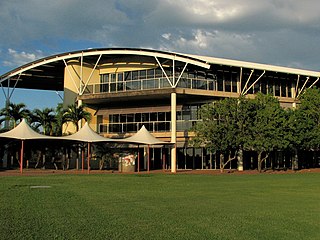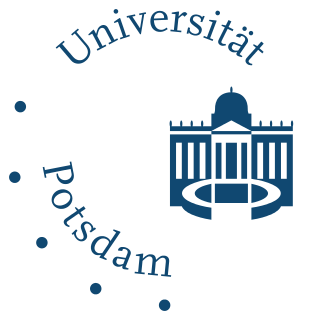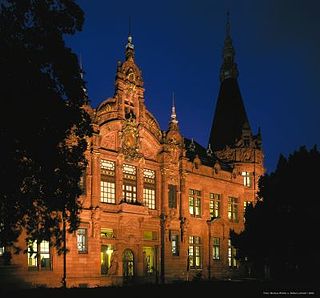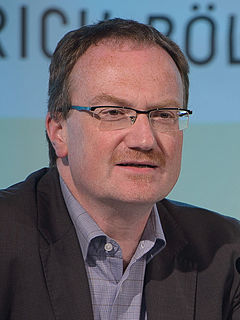Related Research Articles

Heidelberg is a university town in the German state of Baden-Württemberg, situated on the river Neckar in south-west Germany. In the 2016 census, its population was 159,914, of which roughly a quarter consisted of students.

Heidelberg University, officially the Ruprecht Karl University of Heidelberg, is a public research university in Heidelberg, Baden-Württemberg, Germany. Founded in 1386 on instruction of Pope Urban VI, Heidelberg is Germany's oldest university and one of the world's oldest surviving universities. It was the third university established in the Holy Roman Empire.

Ludwig Maximilian University of Munich is a public research university located in Munich, Germany.

Charles Darwin University (CDU) is an Australian public university with about 22,083 students as of 2011. It was established in 2003 after the merger of Northern Territory University (NTU) of Darwin with the Menzies School of Health Research and Centralian College of Alice Springs, and it was named after Charles Darwin, the celebrated English naturalist.

The University of Freiburg, officially the Albert Ludwig University of Freiburg, is a public research university located in Freiburg im Breisgau, Baden-Württemberg, Germany. The university was founded in 1457 by the Habsburg dynasty as the second university in Austrian-Habsburg territory after the University of Vienna. Today, Freiburg is the fifth-oldest university in Germany, with a long tradition of teaching the humanities, social sciences and natural sciences and enjoys a high academic reputation both nationally and internationally. The university is made up of 11 faculties and attracts students from across Germany as well as from over 120 other countries. Foreign students constitute about 18.2% of total student numbers.

The Free University of Berlin is a research university in Berlin, Germany. One of Germany's most distinguished universities, it is known for its research into the humanities, and social sciences, as well as into the natural and life sciences.

Ulster University, legally the University of Ulster, is a multi-campus public university located in Northern Ireland. It is often referred to informally and unofficially as Ulster, or by the abbreviation UU. It is the largest university in Northern Ireland and the second-largest university on the island of Ireland, after the federal National University of Ireland.

Marmara University is a public university in the Fatih district of Istanbul, in Turkey. Erol Özvar replaced M. Emin Arat as rector in 2018.

Saarland University is a modern research university located in Saarbrücken, the capital of the German state of Saarland. It was founded in 1948 in Homburg in co-operation with France and is organized in six faculties that cover all major fields of science. In 2007, the university was recognized as an excellence center for computer science in Germany.

The University of Potsdam is a public university in the Berlin-Brandenburg region of Germany. It is situated across four campuses in Potsdam and Brandenburg. Some faculty buildings are part of the New Palace of Sanssouci which is known for its UNESCO World Heritage status.

Ulm University is a public university in Ulm, Baden-Württemberg, Germany. The university was founded in 1967 and focuses on natural sciences, medicine, engineering sciences, mathematics, economics and computer science. With 9,891 students, it is one of the youngest public universities in Germany. The campus of the university is located north of the city on a hill called Oberer Eselsberg, while the university hospital has additional sites across the city.

The University of Management and Technology (UMT) is one of Pakistan’s top private research universities located in Johar Town, Lahore, Pakistan. The University is chartered by the Government of the Punjab and is recognized by the Higher Education Commission of Pakistan (HEC) as a

The university hospital of Heidelberg is one of the largest medical centers in the Federal Republic of Germany behind the Charité in Berlin and the LMU Klinikum in Munich. It is closely linked to Heidelberg University Medical School which was founded in 1388 and is thus the oldest within the Federal Republic of Germany.

The Interdisciplinary Center for Scientific Computing is a scientific research institute of the Heidelberg University, Germany. It centralizes scientific activity and promotes research and work in scientific computing. Founded in 1987 by the Heidelberg University and the state of Baden-Württemberg, IWR participates in joint project and cooperations with industry in Germany as well as abroad. As a research institute with about 380 staff, IWR is considered one of the world's largest research centers for scientific computing.

The University Library Heidelberg is the central library of the University of Heidelberg. It constitutes together with the 83 decentralized libraries of the faculties and institutes the University Library System, which is headed by the director of the University Library. The University Library holds special collections in literature concerning the Palatinate and Baden, egyptology, archeology, the history of art, and South Asia. It holds about 3.2 million books, 10,732 scientific periodicals, and about 500,000 other media such as microfilms and video tapes. It holds 6,600 manuscripts, 1,800 incunabula, 110,500 autographs, and a collection of old maps, paintings, and photographs. The libraries of the faculties and institutes hold another 3.5 million printed books. In 2005, 34,500 active users of the University Library accessed 1.4 million books a year. The conventional book supply is complemented by numerous electronic services, such as 3,000 commercial scientific journals that can be accessed via e-journal.
Neuenheimer Feld is an area in the city of Heidelberg, Germany. The area lies on the north side of the Neckar river and consists mostly of buildings associated with the University of Heidelberg, including student accommodation and research facilities, as well as the University Hospital Heidelberg. The German Cancer Research Center (DKFZ) and the Max Planck Society also have facilities on the site.

The Botanischer Garten der Universität Heidelberg, also known as the Botanischer Garten Heidelberg, is a botanical garden maintained by the University of Heidelberg. It is located at Im Neuenheimer Feld 340, New Campus, Heidelberg, Baden-Württemberg, Germany; portions are open to the public daily except Saturday without charge.

The history of Heidelberg University starts from its founding in 1386.

Lars Peter Feld is director of the Walter Eucken Institut, Professor for Economic Policy at the University of Freiburg, and a member of the German Council of Economic Experts.

The South Asia Institute (SAI) is an interdisciplinary center of the Ruprecht-Karls University Heidelberg, Germany for research and teaching on South Asia. It was founded in 1962 and is located on the campus in Neuenheimer Feld. Due to the close linguistic and historical ties with the South Asian subcontinent, adjacent cultural regions such as Afghanistan or Tibet are also included in the South Asia Institute.
References
- ↑ "Interview with Rector Bernhard Eitel - Vorstoss in die internationale Dimension". Rhein Neckar Zeitung online. Archived from the original on 2008-04-11. Retrieved 2008-05-16.
- ↑ "Botanischer Garten der Universität Heidelberg". www.bgci.org. Retrieved 9 May 2019.
| This article about a Baden-Württemberg building or structure is a stub. You can help Wikipedia by expanding it. |
